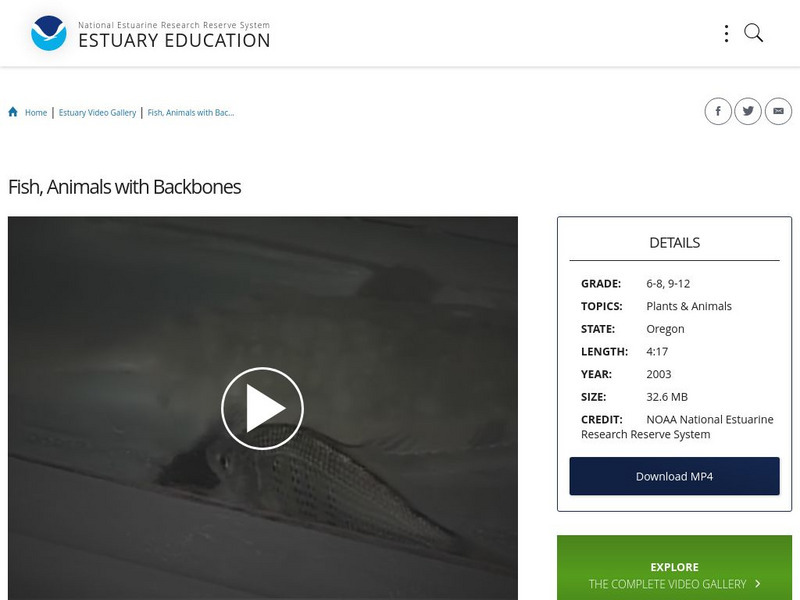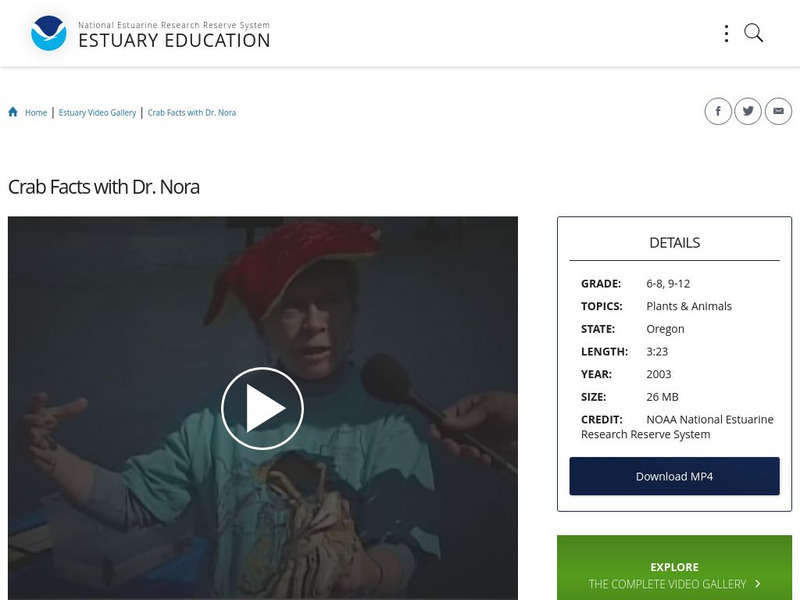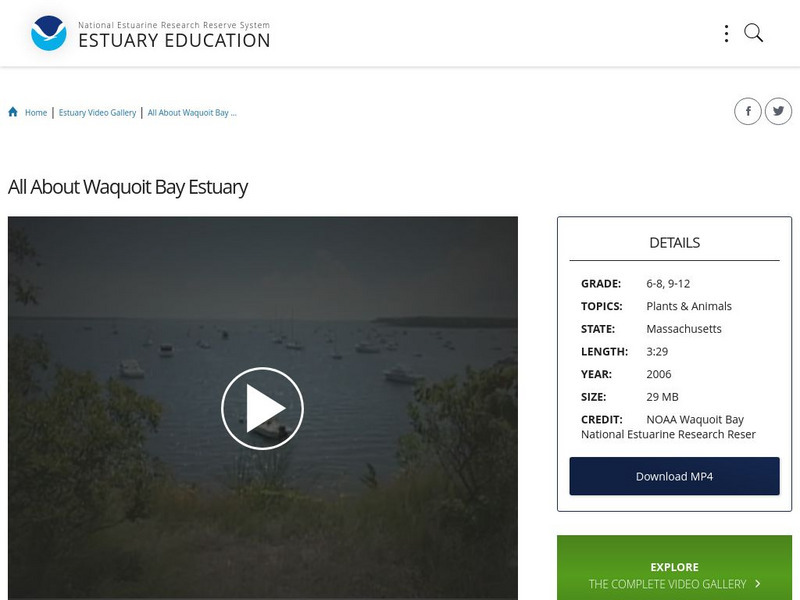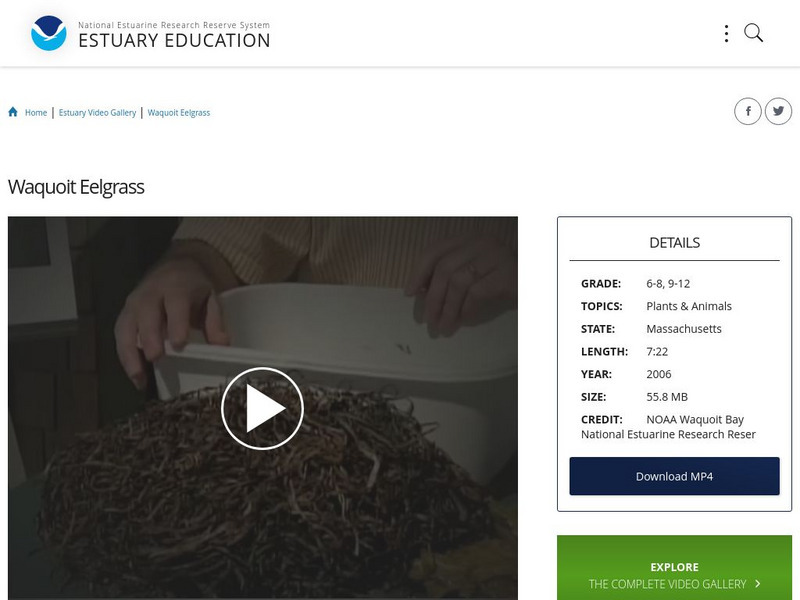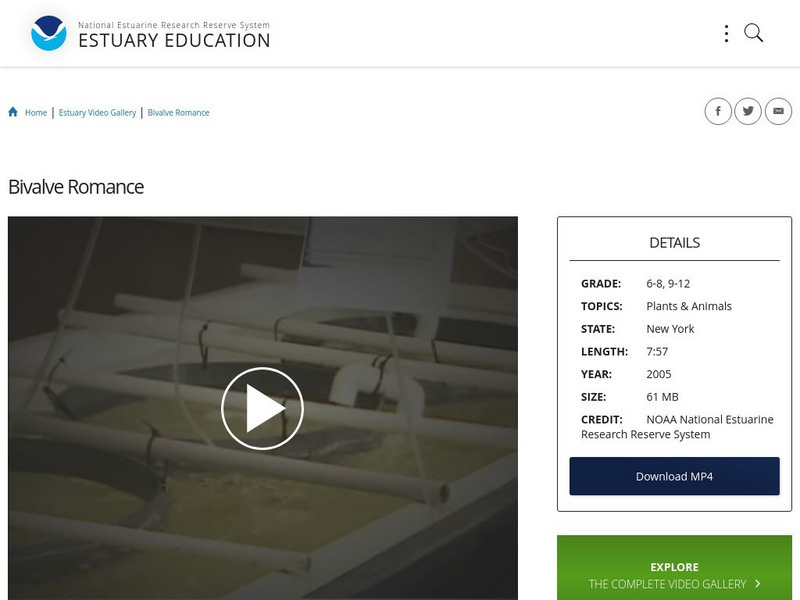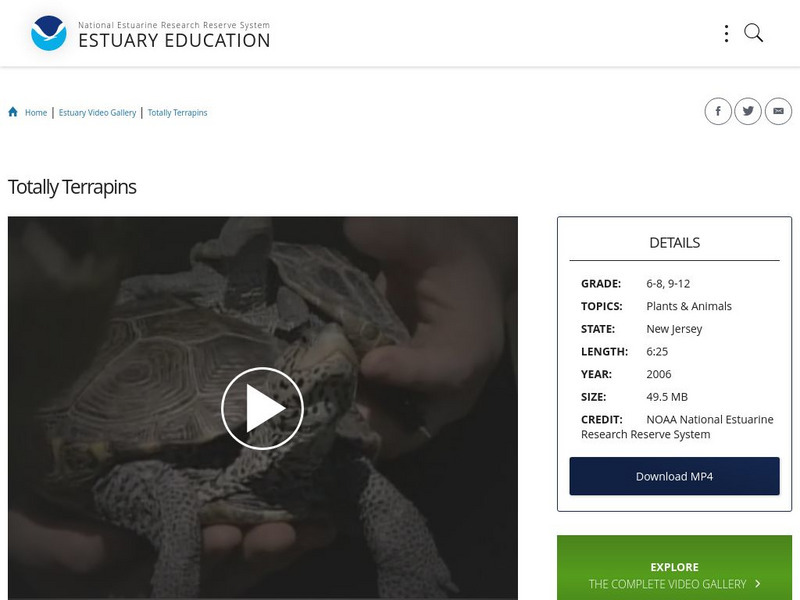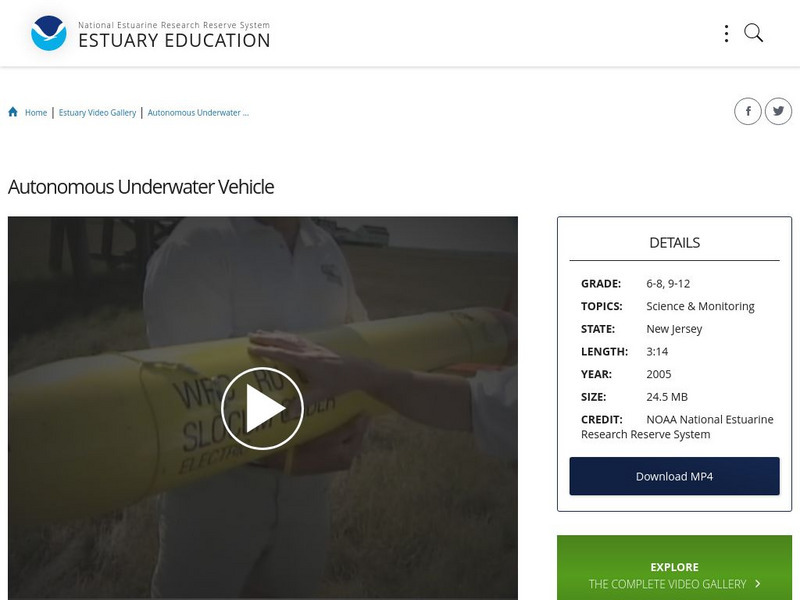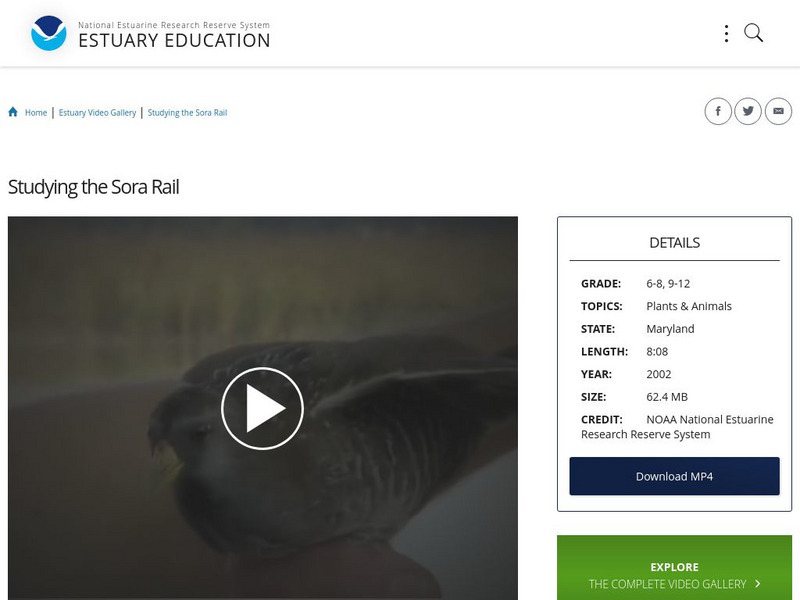Hi, what do you want to do?
NOAA
Noaa: Estuary Education: Saving the Tijuana Estuary
The estuary stands as the last barrier between the Pacific Ocean and pollution. Its mix of plants and silt acts as a filter that purifies contaminated inland rain and flood waters before they reach the ocean. [3:47]
NOAA
Noaa: Estuary Education: Estuary Forests: History in Wood
A look at the South Slough, Oregon estuary forests and learn about the history of human inhabitants and the importance of logging. [7:40]
NOAA
Noaa: Estuary Education: Saving Lives
Life on the Edge: Saving Lives looks at the work of the Coast Guard as they patrol the waters around South Slough Estuary. [5:00]
NOAA
Noaa: Estuary Education: Catching Crabs
Understand why crabbing is important to an estuary region both for recreation and commercial reasons. [7:01]
NOAA
Noaa: Estuary Education: Fish, Animals With Backbones
Learn about the life of several fish species as they thrive in the estuary ecosystem. See some close-ups of South Slough Estuary fishes while learning about their importance to the food chain. [4:14]
NOAA
Noaa: Estuary Education: Water Quality in South Slough Reserve
Learn how to measure and test for water quality with simple tools. We discuss the need for constant measurement and testing and learn about the status of water quality in South Slough Estuary Reserve. [7:17]
NOAA
Noaa: Estuary Education: Crab Facts With Dr. Nora
Learn some secrets of the Dungeness Crab with Dr. Nora. Look at the life cycle of these creatures and learn facts about their unique blood. [3:21]
NOAA
Noaa: Estuary Education: All About Waquoit Bay Estuary
A quick overview of the Waquoit Bay Estuary, including what an estuary is and what makes this estuary unique. [3:29]
NOAA
Noaa: Estuary Education: Quest for Clams
Enjoy a historic Wampanoag Clambake and learn about the clam, a tasty bivalve to some and a way to make a living to others. [9:20]
NOAA
Noaa: Estuary Education: Waquoit Eelgrass
Eelgrass is one of the most important indicator plants in the estuary. Learn about how the health of this plant is often a measure of the health of the ecosystem. Also includes a look at how septic systems impact estuary plants. [7:22]
NOAA
Noaa: Estuary Education: Researching the Clam
Everything you wanted to know about clams and other related bivalves of Waquoit Bay in Massachusetts. [4:21]
NOAA
Noaa: Estuary Education: Cool Critters of Peconic Bay
Young students show and describe some of the unique critters in the Peconic estuary in New York. [7:49]
NOAA
Noaa: Estuary Education: Bivalve Romance
Tour a hatchery where clams, oysters, and scallops are raised, and learn about the steps of the bivalve life-cycle. Meet community members who support this ecological effort. [7:53]
NOAA
Noaa: Estuary Education: Totally Terrapins
Everything you always wanted to know about the estuary's Diamondback Terrapin and how it is being protected. [6:22]
NOAA
Noaa: Estuary Education: Tracking Striped Bass
Estuary scientists use sophisticated electronic equipment to study and track the Striped Bass, a resident of the estuary and open ocean. [9:16]
NOAA
Noaa: Estuary Education: Sampling Seagrass
A look at various types of estuary grasses and the animals that are sheltered in this habitat, plus a look at the methods scientists use to study these grasses. [6:10]
NOAA
Noaa: Estuary Education: Intertidal Habitat
Join a scientist and several young students as they explore an intertidal pool using a seine net and fish traps. [4:45]
NOAA
Noaa: Estuary Education: Dolphin Research at Jcnerr
A scientist who specializes in studying the Bottlenose Dolphin population in the Jacques Cousteau Reserve in New Jersey discusses using special equipment to track and learn more about the species. [4:50]
NOAA
Noaa: Estuary Education: New Jersey Clamming
A New Jersey clammer teaches all about clams and how they are harvested. [6:09]
NOAA
Noaa: Estuary Education: Autonomous Underwater Vehicle
Learn about the Slocum Glider, a cruise missile and designed to explore the ocean for months at a time with no human direction. [3:14]
NOAA
Noaa: Estuary Education: New Jersey Terrapin Close Up
Find out about the importance of the estuary ecosystem, and the terrapins' relationship with these special wetlands. [4:46]
NOAA
Noaa: Estuary Education: Totally Turtles
Meet scientists and students at the Jug Bay Reserve in Maryland as they study and track the common Box Turtle. [7:25]
NOAA
Noaa: Estuary Education: Tracking Turtles
Learn how scientists track turtles and other research subjects using radio transmitter technology [3:56]
NOAA
Noaa: Estuary Education: Studying the Sora Rail
Have you heard the expression "skinny as a rail?" Learn where it originated and much more about this unusual bird, the Sora Rail. [8:05]









